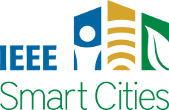February 2022
Smart Cities February eNewsletter - Empowering Energy Citizens and Energy Communities for Smart Cities, Part 2
For a downloadable copy of this eNewsletter, please visit the IEEE Smart Cities Resource Center.
Resource Center Update: Improved user experience for IEEE members! Access/Download free products without a checkout process.
Written by Shafi Khadem, Guest Editor
While empowering citizens by turning them from passive to energy active consumers, implementing smart appliances in smart buildings, introducing energy trading/sharing with neighbours, developing new local energy market mechanisms and creating energy communities, the development of integrated technologies/energy systems are some of the most important areas in the formation of smart cities, the innovative smart energy solutions and integrations at the community level can be replicated at the city level. This is part two of a special issue focusing on innovations that are being approached by stakeholders to develop and demonstrate how energy citizens can be empowered to form smart energy communities. These efforts will lead to the development of decarbonized smart grids and cities.
Written by Anna Gorbatcheva, Nicole Watson, Shafi Khadem, Alexandra Schneiders, and David Shipworth
With increasing global concern about the impact of climate change, there is a need to empower energy citizens to contribute to the energy transition through more active participation. Different energy exchange mechanisms exist, and some of the most important ones are peer-to-peer (P2P), Community Self-Consumption (CSC) and Transactive Energy (TE). Stakeholders such as consumers, producers, technology providers, policymakers, and academics are very active these days. Still, there is a lack of consensus on the terms P2P, CSC, and TE, and there's also a lack of communication among these stakeholder bodies. The Global Observatory on P2P Energy Trading (GO-P2P) has taken an initiative to develop an observatory on this task to define these concepts and minimise the gaps in the real-field practices. This article will discuss the ongoing work of GO-P2P where the physical, ICT, market, socio-economic, policy and regulatory layers on these models are being explored in detail to ensure a horizontal and vertical integration across the layers and the parties involved. Some of the key findings will be outlined here with a recommendation for the next steps.
Written by Rachel Gray, Benedict Vergara, Saniya LeBlanc, and Payman Dehghanian, The George Washington University
The design and operation of energy systems build the foundation for district energy systems to meet environmental, security and financial goals. Therefore, developing transparent and interpretable energy modeling platforms, while sharing development plans and experiences with the surrounding communities, will accelerate the transition to clean and interconnected Smart Cities.
Written by Vinod Pangracious, Chair and Associate Professor in Electrical and Computer Engineering, American University in Dubai, United Arab Emirates
In today's world, there is a growing demand for intelligent applications to make city life both interesting and sustainable. This paper introduces a Blockchain-based peer-to-peer energy transaction framework for trading the decentralized clean energy within a connected society. The Smart Energy-Trading model is designed to initiate transactions autonomously while interacting with home automation unit. The application autonomously manages generation, consumption, and distribution of clean energy using distributed renewable energy sources. The proposed application is an autonomous peer-to-peer transaction model that aims to increase clean energy production, consumption, and optimization, which indeed will reduce greenhouse gas emissions in metro areas where the excessive clean energy generated from the renewable energy sources, including homes, office buildings, and factories are autonomously traded within a connected society.
To have the eNewsletter delivered monthly to your inbox, join the IEEE Smart Cities Community.
Past Issues
To view archived articles, and issues, which deliver rich insight into the forces shaping the future of the smart cities. Older eNewsletter can be found here. To download full issues, visit the publications section of the IEEE Smart Cities Resource Center.



